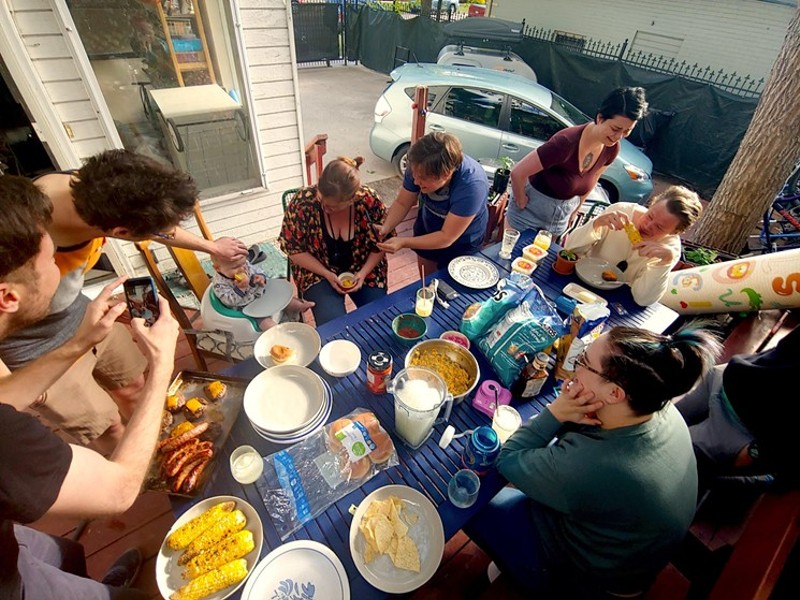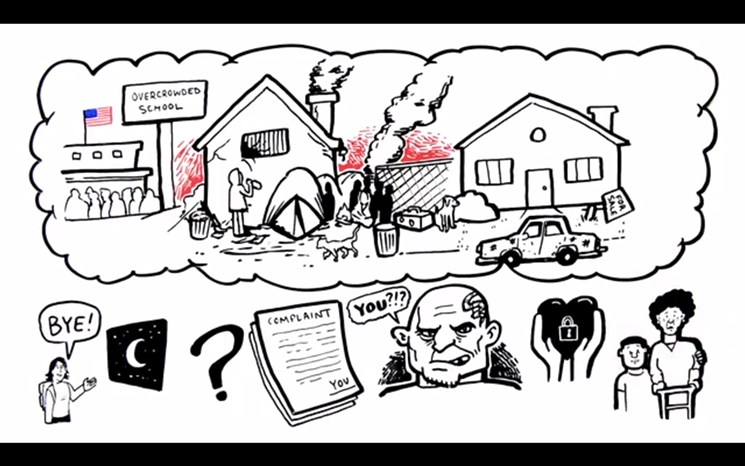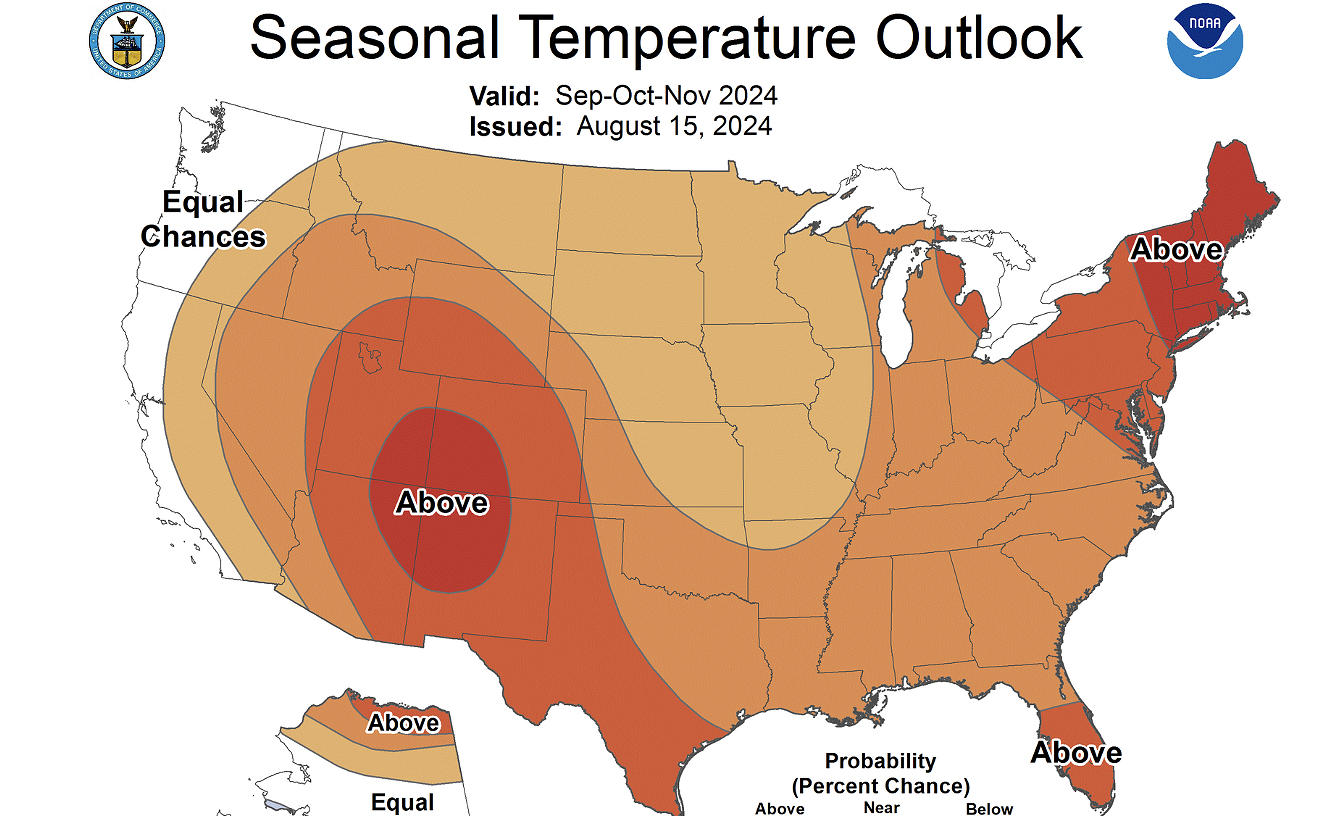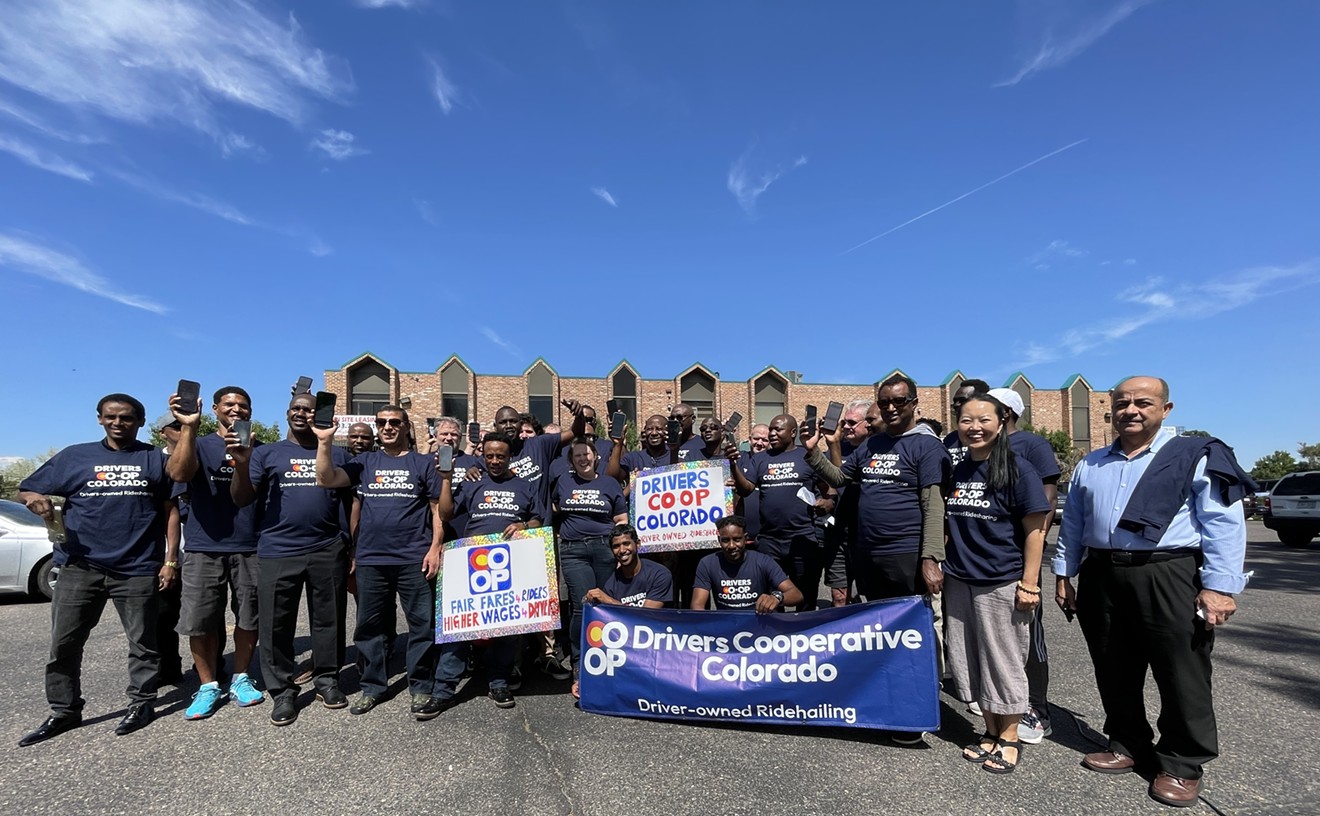On February 8, Denver City Council will vote on a group-living ordinance that marks the most significant attempt to overhaul the current Denver Zoning Code since it was enacted in 2010.
"After three years of research and preparation — and four months of in-depth work with City Council’s Land Use, Transportation and Infrastructure committee — we have arrived at a balanced package of amendments that improves Denverites’ ability to seek care and share housing costs, while also making it easier to regulate these land uses," Denver Community Planning and Development says in a fact sheet outlining the group-living proposal.
The measure would increase the number of unrelated adults who can live in the same home from two to five, and also allow service providers to more easily establish residential-care facilities, such as halfway houses, homeless shelters and sober living homes, throughout Denver. The final proposal going before council has been watered down in response to objections from some members.
Even so, the vote could be tight. Westword reached out to all thirteen members of Denver City Council to learn which way they were leaning, and it looks like at least seven will vote in favor of the ordinance — the number needed for the proposal to pass. Five other councilmembers seem undecided.
"While there are many people who had concerns over previous drafts of this proposal, our staff have worked steadfastly with City Councilmembers and Denverites from all council districts to refine the proposal to address those concerns," CPD says in the fact sheet.
Councilwoman Debbie Ortega, who sat on an advisory committee working on the proposal, agrees that it was fine-tuned through a "vast community input process."
"I appreciate the greater Denver community reviewing and giving good input that has resulted in a package that still has safeguards in place for neighborhoods while at the same time giving some flexibility to homeowners," she says. "I don't believe some of the changes in the ordinance will result in drastic changes to our city, because most people don't want someone living in their home, and it protects from someone buying multiple properties just to rent out rooms."
The proposal has its roots in a council move that dates back to 2008, when Denver City Council approved the expansion in size of four halfway houses in Denver. Debate over that led to a decade-long moratorium on additional expansions.
"The driving variable at that time was the need to expand bed capacity," recalls Greg Mauro, director of Denver's Division of Community Corrections, noting that the "moratorium served as an opportunity to evaluate if the expansion of beds resulted in any significant issues." Until and unless the group-living zoning amendment is passed, community corrections operators will have a difficult time establishing new halfway houses in Denver, Mauro adds.
As the moratorium was winding down in 2017, city officials began looking at possible changes to the Denver Zoning Code related to halfway houses. At the same time, city planners saw other group-living issues that needed to be addressed, and decided to merge those into a single project that would devise one proposal.
"The city started this project focused on 'group living,' which is a section of the Denver Zoning Code’s residential regulations governing residential care, shelters and community corrections facilities, with other emerging uses in mind," says Laura Swartz, a spokesperson for Community Planning and Development. "In the very early problem-identification stage, city staff and the advisory committee identified that the 'household' regulations located in the same section of the code were also an outdated obstacle that needed to be addressed."
In 2018, city planners formed a Group Living Advisory Committee comprising sober-living home operators, proponents of communal living, heads of halfway houses and homeless-service providers, among others, for assistance with the project.
In January 2020, Andrew Webb, the senior city planner running the project, unveiled key aspects of an initial group-living proposal, including upping the number of unrelated adults who can live together in the same home from two to eight. After some tinkering with the proposal, Webb changed that cap to five unrelated adults, with the ability to increase to ten depending on household square footage.
But several members of council didn't like that provision. And this past summer, a group of residents formed an opposition organization called Safe and Sound Denver and began advocating against the suggested group-living changes, saying the proposal could have major negative effects on residential areas in the city.
"The proposed zoning amendment would allow a minimum of five and as many as 10 unrelated adults and all of their relatives and an unlimited number of children to live in a single-family residence. As a human quality-of-life issue, this is unconscionable and a dereliction of duty by government to protect the life, health, and safety of its residents," Safe and Sound Denver wrote in an October email.
Reducing the number of unrelated adults allowed in a household isn't the only change that CPD planners made to the final proposal. They also added a provision to prevent those interested in running a boardinghouse from profiteering from the increase in the number of unrelated adults who can live together, and they watered down aspects of the proposal related to halfway houses and homeless shelters.
But even after those tweaks, opponents remain vocal. And they will be out in force at a public hearing on February 8 before Denver City Council votes on the final proposal.

Audio By Carbonatix
[
{
"name": "Air - MediumRectangle - Inline Content - Mobile Display Size",
"component": "12017618",
"insertPoint": "2",
"requiredCountToDisplay": "2",
"watchElement": ".fdn-content-body",
"astAdList": [
{
"adType": "rectangle",
"displayTargets": "mobile"
}
]
},{
"name": "Editor Picks",
"component": "17242653",
"insertPoint": "4",
"requiredCountToDisplay": "1",
"watchElement": ".fdn-content-body",
"astAdList": [
{
"adType": "rectangle",
"displayTargets": "desktop|tablet"
},{
"adType": "rectangle",
"displayTargets": "desktop|tablet|mobile"
}
]
},{
"name": "Inline Links",
"component": "18838239",
"insertPoint": "8th",
"startingPoint": 8,
"requiredCountToDisplay": "7",
"maxInsertions": 25
},{
"name": "Air - MediumRectangle - Combo - Inline Content",
"component": "17261320",
"insertPoint": "8th",
"startingPoint": 8,
"requiredCountToDisplay": "7",
"maxInsertions": 25,
"watchElement": ".fdn-content-body",
"astAdList": [
{
"adType": "rectangle",
"displayTargets": "desktop|tablet"
},{
"adType": "rectangle",
"displayTargets": "desktop|tablet|mobile"
}
]
},{
"name": "Inline Links",
"component": "18838239",
"insertPoint": "8th",
"startingPoint": 12,
"requiredCountToDisplay": "11",
"maxInsertions": 25
},{
"name": "Air - Leaderboard Tower - Combo - Inline Content",
"component": "17261321",
"insertPoint": "8th",
"startingPoint": 12,
"requiredCountToDisplay": "11",
"maxInsertions": 25,
"watchElement": ".fdn-content-body",
"astAdList": [
{
"adType": "leaderboardInlineContent",
"displayTargets": "desktop|tablet"
},{
"adType": "tower",
"displayTargets": "mobile"
}
]
}
]













